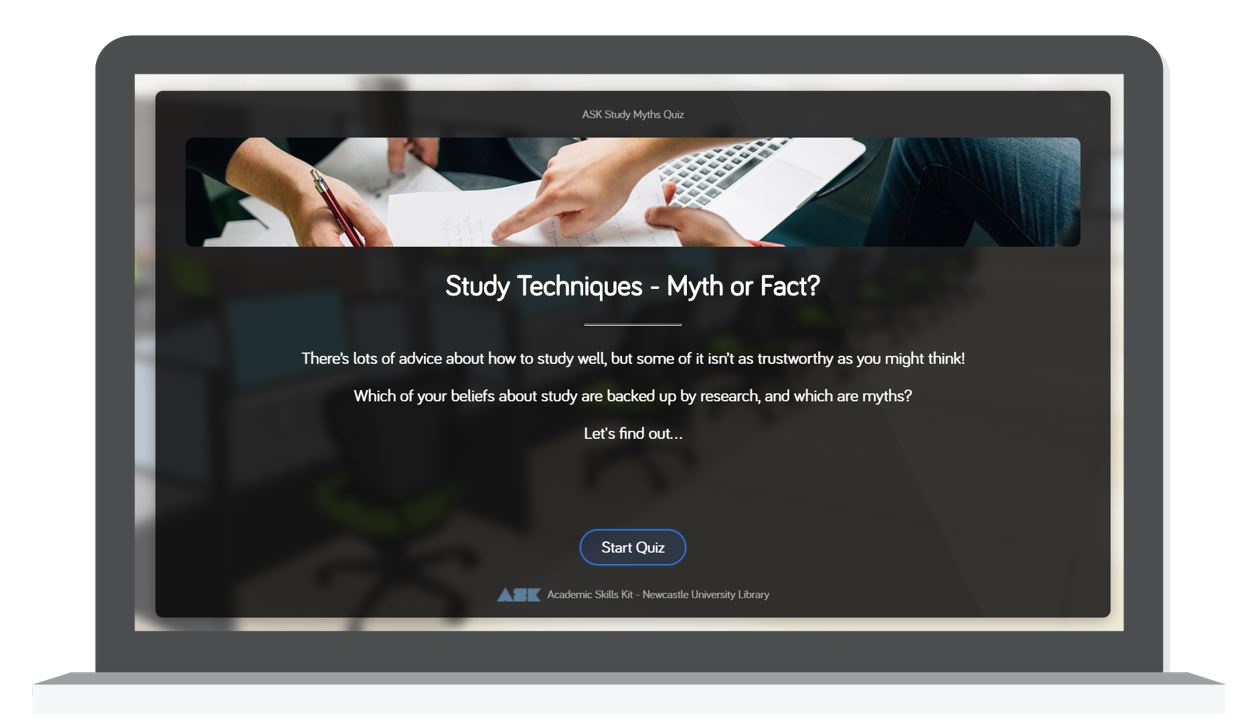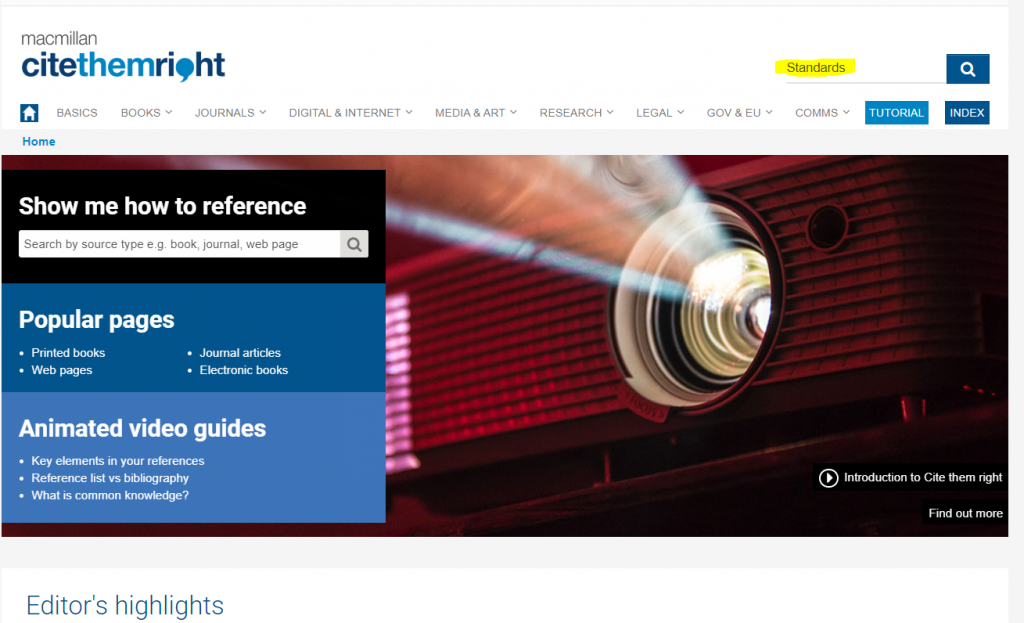Learn the basic steps of a reference, and you can hit the rhythm with any style you need.
Referencing – why is it snow important?

When walking in the snow we need the right footwear, and to keep warm, a scarf, hat, and gloves are also of great help. By doing so, we are adapting to the environment and using the right tools at the right time for the job at hand.
The same is true when adapting to academic writing where referencing is a key tool.
When you are writing a piece of work and you use someone else’s thoughts, words or ideas, you must reference them. But why do we talk about referencing so much at University, and why is it so important? Why should you bother spending time on ensuring that your references are consistent, accurate and correct?
It all comes down to why we reference in the first place:
- To make your contribution clear by showing which words and ideas are yours, and which have come from your reading.
- To acknowledge the work of others and to demonstrate how you have built on the knowledge that you’ve gained from your reading.
- To ensure that the reader can follow up on your references for themselves.
- To avoid being wrongly accused of plagiarism.
Watch our short video to find out a little more about why we should bother with referencing.
Find out more on our Managing Information skills guide.
Routine for Referencing

What are the key steps to a successful routine for referencing? Of all the enquiries we get in the Library, referencing is the most common.
Referencing is the acknowledgement of the sources that you use in your work. You must reference all sources that you use in your assignment, project or dissertation, including words and ideas, facts, images, videos, audio, websites, statistics, diagrams and data.
Over the next two weeks weeks we’re focusing on referencing, giving you the routine for success. As a novice, you might need a little help to understand the steps and techniques for your referencing style.
We’ll tell you where to get advice and help
Understand why we reference and how
How to avoid plagiarism
How to manage your information to make your life easier and assignments less stressful, giving you the routine for success.
Mobile Apps & Resources Guide

Our mobile devices are great for helping us to stay in touch with friends and family, keeping us up-to-date with the latest trends and news on social media and, of course, for sharing cat videos.
However, your mobile device can also be a great tool for learning and study, if you’ve got the right apps!
With recommendations from students in SNES, (who have been using tablets on their course for the past year) our updated Mobile Apps and Resources Guide provides a host of freely available apps and mobile friendly resources that can help you get the most from your device. It includes apps for study and productivity, creativity and design, history, languages, business, science and more.

So whether you’re just getting set up with your tablet or an old hand looking for something new to help keep you organised with your work or up-to-date in your subject area, our guide has something to help.
Some highlights include:
Microsoft Office Lens – this app helps you make documents or pictures of whiteboards screen readable. You can also use Office Lens to convert images to PDF, Word and PowerPoint files.
Pocket – allows you to save articles, videos and stories from any publication, page or app to read at a later time.
Trello – a useful tool that helps you to organize and prioritize your projects using boards, lists and cards.
BrowZine – a tool that allows you to access and keep up to date with key journal titles that the Library subscribes to in your subject area.
If you have any further suggestions for useful apps that we could add to the guide, let us know at: lib-sage@ncl.ac.uk
Finding help with IEEE referencing
For those of you reading this that don’t know, the IEEE referencing style is a numeric citation system used in engineering, electronics, computer science and information technology publications. And for those of you reading that already know this, you will be pleased to hear that the IEEE referencing style has now been added to Cite them right (If you have trouble accessing Cite them right off campus, just search for it on Library Search).
So what does this mean and how does it help? Well, let’s say that you have referred to a set of specific technical standards in your most recent academic work but aren’t quite sure how to reference them accordingly. Open Cite them right and type standards into the search bar at the top right of the home page and hit the Enter key:
The search results will return a link detailing how to reference technical standards:
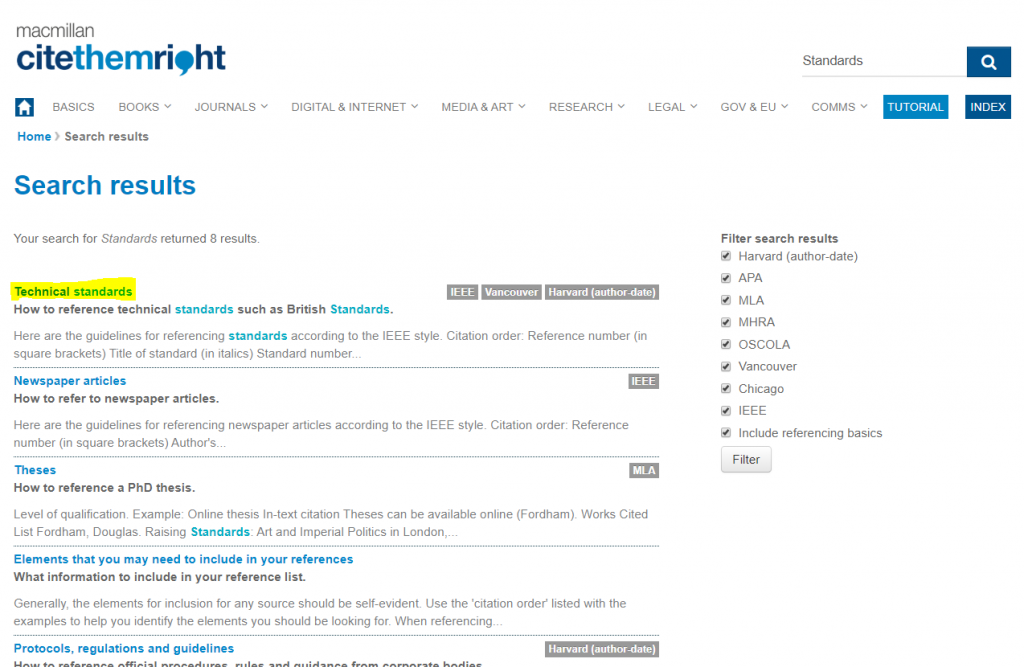
All that’s left to do now is to click on the link, select IEEE from the drop down reference style menu and follow the excellent guidance. There’s further help on IEEE referencing on the far right hand side:
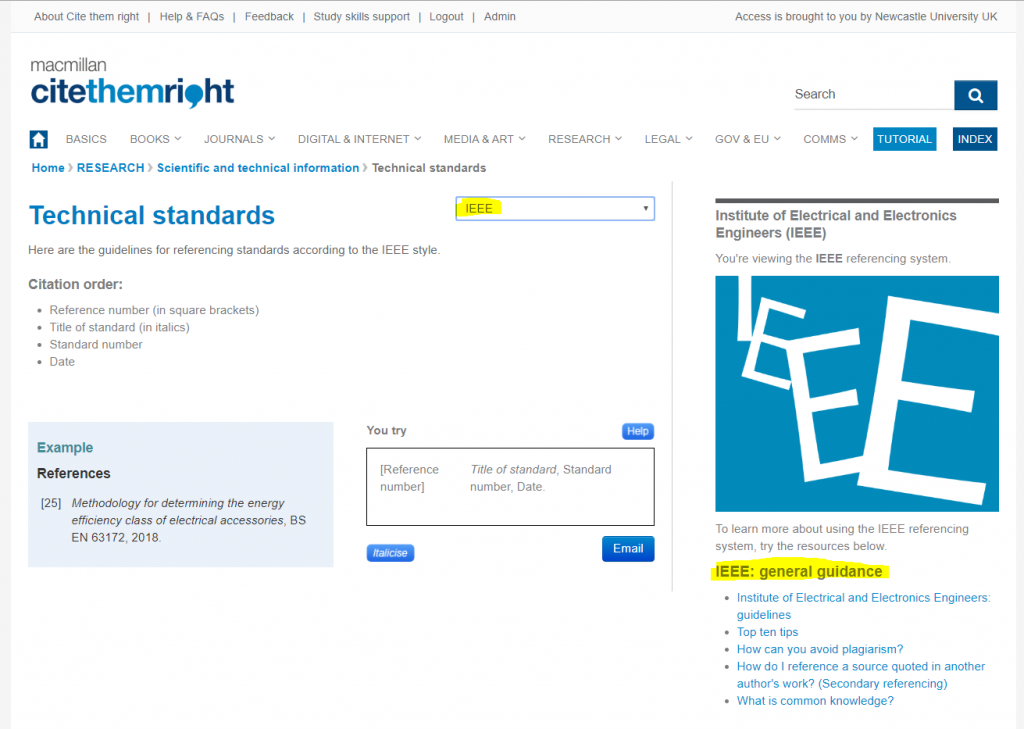
As well as referencing technical standards, journal articles and books in the IEEE style, Cite them right will also show you how to reference more unusual items, such as Twitter posts and YouTube videos, enabling you to correctly include all of your research sources with ease.
New book bin at Fredrick Douglass Centre
From 7th October we are piloting a scheme where you can return your long loan library books to any of the following locations on campus regardless of where they were borrowed:
- Philip Robinson Library
- Law Library
- Walton Library
- *NEW* Frederick Douglass Centre
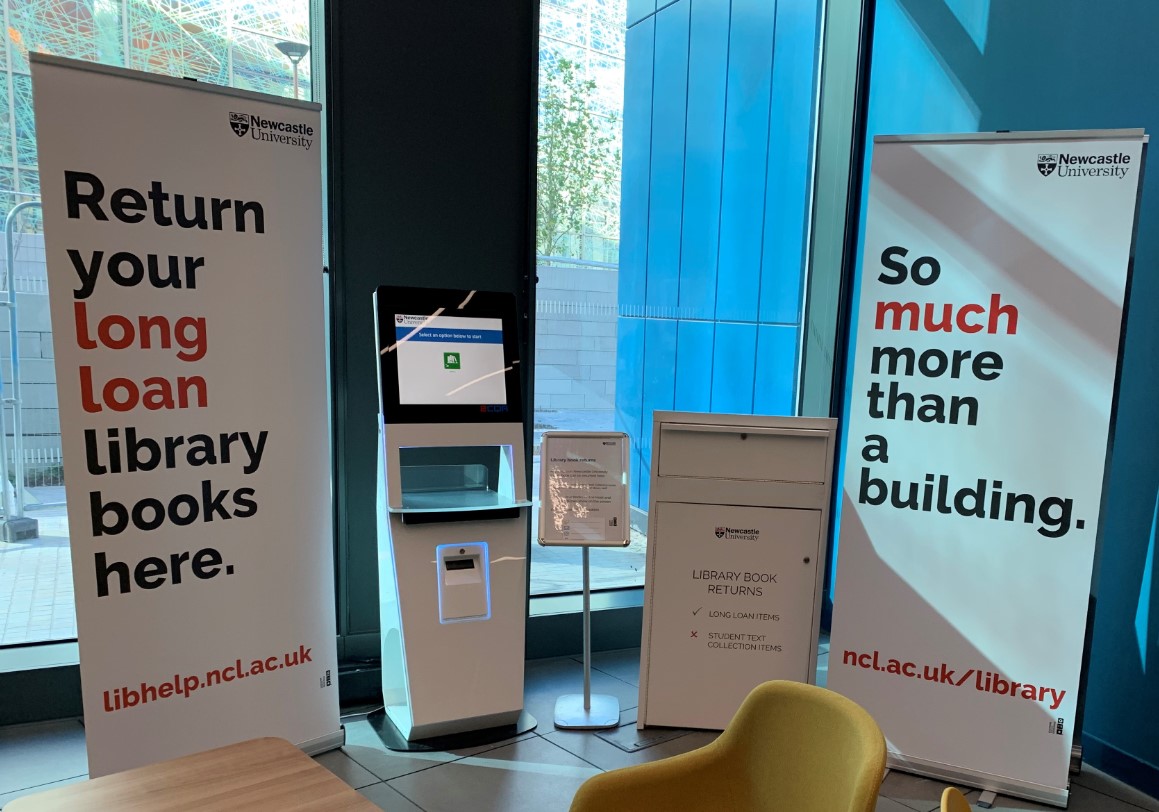
For those based at the Helix site, we have also included a new book return drop off point located in the Frederick Douglass Centre – view on Google Maps.
Remember, this only applies to long loan items – Student Text Collection items will still need to be returned to the library you borrowed them from.
This pilot will run throughout the first semester. The items from the book bin will be collected 9.15am and 3.30pm Monday to Friday (with the bin being closed and the machine shut down on Friday at the last collection of the week.)
Welcome to the University Library

Whether you’re a fresher or a final year student we want to help you get the most from your Library. From discovering resources to finding the right study space, to where to go to get help with your coursework. We’ve made a short video so if you’ve only a few minutes to spare it’s all you need to get started….
Transitioning from school to university
Brush up on your search skills

Searching should be easy, right? We do it all the time in our day to day lives and with Google so ingrained into our existence, we don’t give it much thought. We type some words into the search engine and most of the time we find what we are looking for. Nothing to it!
However, while this approach certainly works for checking out cinema times or booking flights, it lets us down where research is concerned. We have high expectations that information will be quick and easy to come by and that it will be neatly organised in one place, rather than having to search in multiple locations, using different techniques. We imagine that the time consuming part of our research will be the analysing, synthesizing and the writing of it and we often don’t even think about the searching side of things.
The reality though is quite different. Without investing in our searching techniques and the development of a search plan, we can often find ourselves overwhelmed by information and not being able to see the wood from the trees. Our stress levels rise and our frustrations explode. Surely finding information shouldn’t be this hard!
The good news is, is that there is help to be had. Our job as Liaison Librarians is to equip you with the skills you need to create that all important search plan and to encourage you to pause and stop before you dive straight into finding information for your research.We have a fantastic range of online tools for you to do this, not least an interactive search planner that you can keep adding to throughout your search and which you can even email to yourself, supervisor or us as a Liaison team for feedback. And our ‘Finding Information’ academic skills guide has lots of advice on how to start a search, including how to break your concept down into manageable chunks and how to identify keywords and synonyms.
You can also check out this short video to get you started…….
Keep your eyes peeled for our next blog installment of how to find particular resources. See you then!
Photo by Debby Hudson on Unsplash
Taking you to the next skills level
Have you heard about ASK? It’s the University’s one-stop-shop for academic skills.
Are you concerned about being accused of plagiarism? Having some difficulty with statistical analysis? Struggling to write a persuasive argument in your essay? Feeling like you’re not able to manage your lecture, seminar and assignment workload? Or perhaps you are a master procrastinator who needs to just crack on with some work. The ASK (Academic Skills Kit) can help!
Signposting you to the services, resources and support available across Newcastle University, it will help you identify where to go for advice and support to improve your study habits and develop skills that are invaluable for University and what comes after.
ASK directs you to the correct place for support and includes online resources such as quizzes and videos, to help you better understand where you may need to grow.
Why not start with the myth busting quiz developed by the Writing Development Centre for some quick tips on how to study well?
